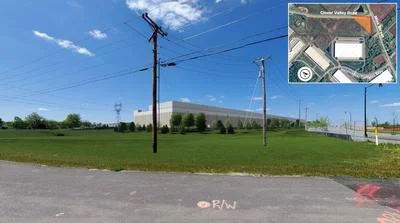The Frasier Solar facility proposed for Knox County has raised numerous questions about the effects it will have on the local population and economy.
One of the potential areas of concern related to Frasier Solar is that part of the facility would occupy 100 acres in the southern tip of Mount Vernon. This would include solar panels and an electric substation.
The area is currently zoned for residential use, but there are residential developments and industrial uses in the area. The change of use is of concern to local officials and residents.
“The proposed use does not fit with the City’s long term plans for development - especially along the corridor in the vicinity of the Industrial Park,” wrote Matthew Starr, mayor of Mount Vernon, in comments to the Ohio Power Sitting Board (OPSB).
In most cases, a developer would have to go through the city’s development process to build on the property and seek a zoning change if the proposed use is not compatible with the property’s existing zoning designation. Stark Solar will not have to do that. An OPSB certification of the facility as a public utility would override the city zoning and planning process.
Tanner Salyers, the city’s safety service director, weighed in on this issue with an email in response to questions directed to the president of the city council, Bruce Hawkins.
“While this acreage is in the city and we'd prefer to have housing on it over industrial solar, there has been no discussion with the city and any developer on actually putting housing on this property,” said Salyers.
In March, the Mount Vernon City Council adopted a resolution opposing Frasier Solar.
“The Council of the City of Mount Vernon has responsibility for supporting the preservation of the rural integrity, agricultural priorities, listening to community input and unique tourism opportunities within the boundaries of Knox County,” according to the resolution.
The Council also expressed concern about the potential harmful effects of Frasier Solar on the local economy. The Council noted that Frasier could result in a “reduction in agricultural land for less efficient uses” and expressed concern about the “overall effect on tourism potential for the City of Mount Vernon.”
The 100-acre parcel could generate millions of dollars of property tax revenue for Mount Vernon over the life of Frasier Solar if it was instead used for residential or industrial purposes. In Frasier’s application with the OPSB, it is estimated that Payment in Lieu of Tax (PILOT) payments from Frasier to the city are scheduled to be only $2,876 annually.
“The property taxes that are scheduled to come to the City are a small fraction of what would come to the city in terms of income tax and business tax that would be generated from housing and/or industrial development - revenues that help the City maintain its infrastructure and provide public safety for the Citizens,” wrote Starr.
Ultimately, city officials have determined that Mount Vernon would be better off without Frasier Solar.
“Council has determined that the development of the Frasier solar energy project is not in the best interests of its citizens and the community at large,” the Council determined in its resolution. Starr’s comments to the OPSB echoed this sentiment.
“Writing to you with the City's best interests in mind, the industrial solar option does not serve the City of Mount Vernon,” he wrote.







